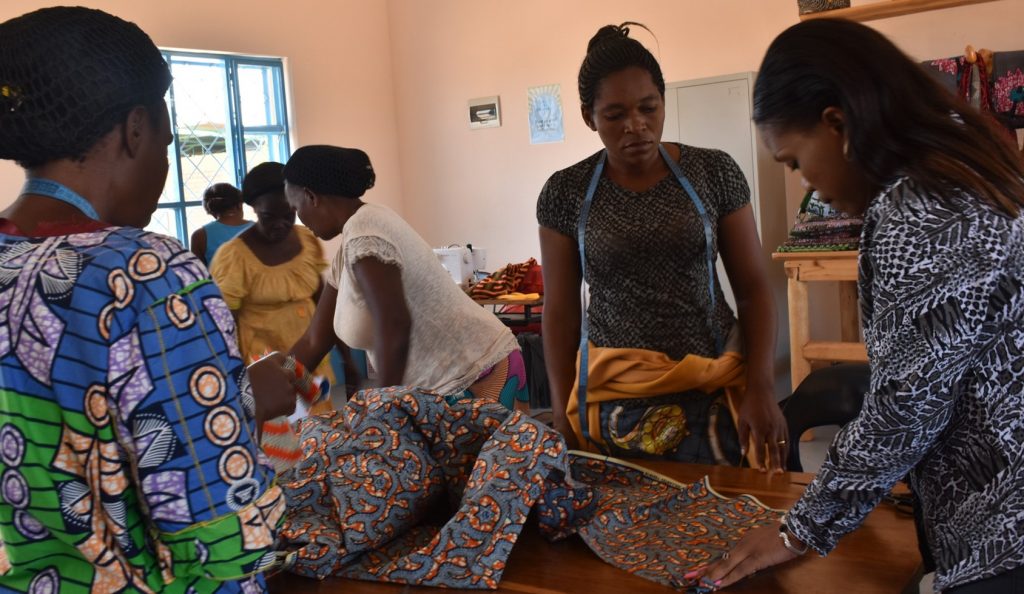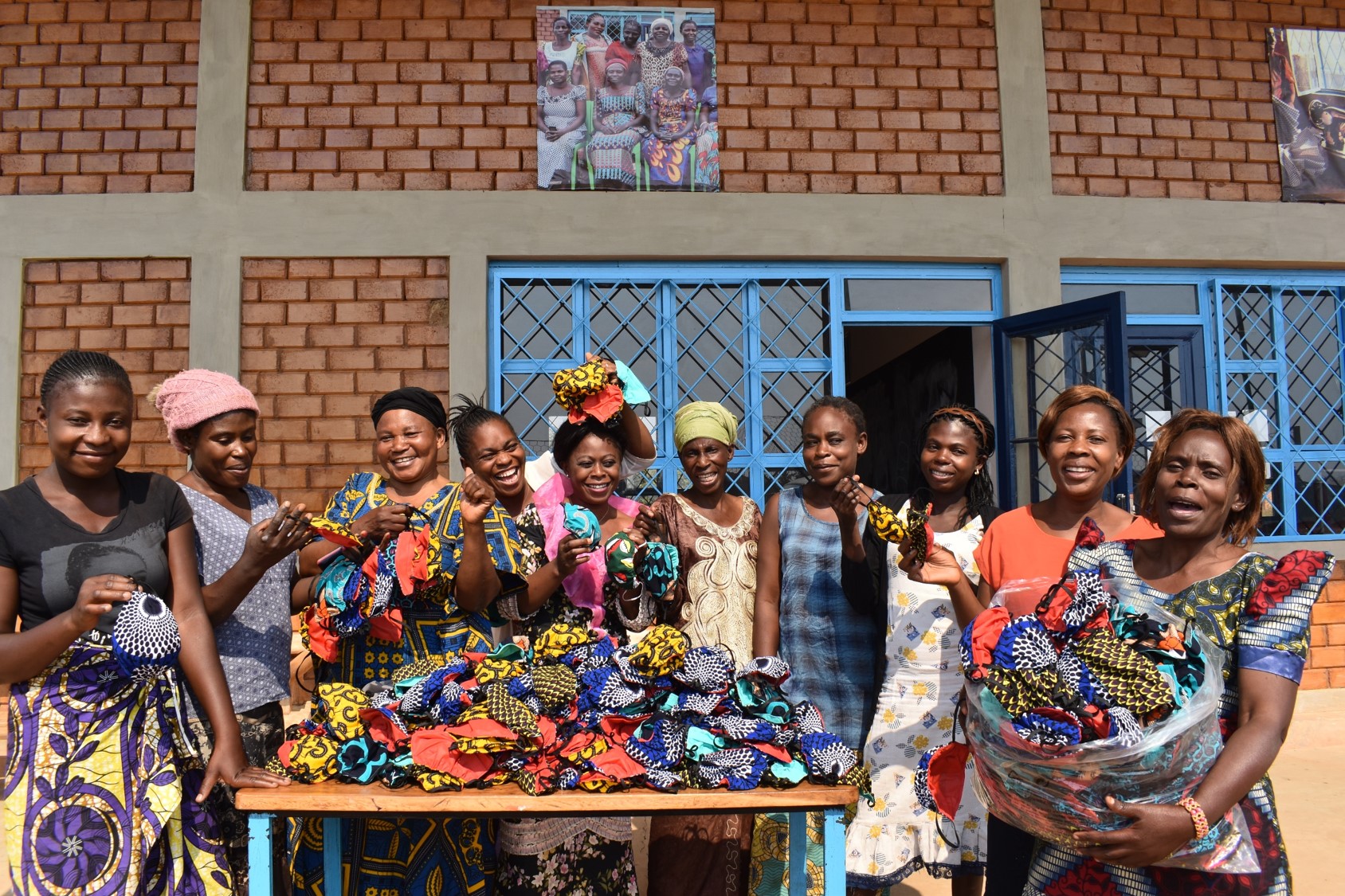
Mission
Malaika’s mission is to empower Congolese girls and their communities through education and health programs. This program expands Malaika’s vocational training program for women in Kalebuka.
Life Challenges of the Women Served
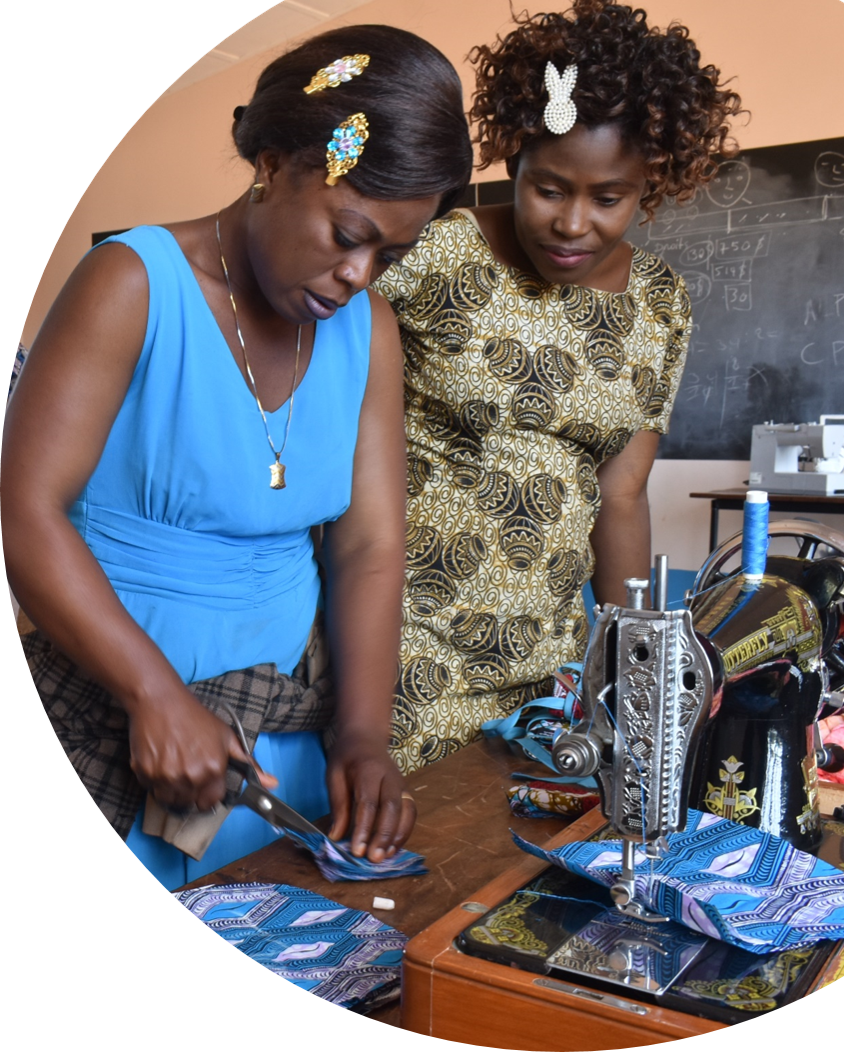 Women and girls in the Democratic Republic of the Congo face severe poverty and hardship due to long held gender discrimination beliefs. They are routinely excluded from education and formal work opportunities, creating dependency and increased vulnerability to sexual violence, human trafficking, exploitation, child labor, early pregnancy, and child marriage. This hardship is more extreme in rural areas like Kalebuka, where the average resident survives on $1.25 per day and only 4 percent of the women are literate. The current situation in Kalebuka has a ripple effect, creating subsequent generations who lack access to education and opportunities, remaining stuck in poverty. There are currently over 35,000 people in the Kalebuka area. This population is poised to grow, taxing an already inefficient support system.
Women and girls in the Democratic Republic of the Congo face severe poverty and hardship due to long held gender discrimination beliefs. They are routinely excluded from education and formal work opportunities, creating dependency and increased vulnerability to sexual violence, human trafficking, exploitation, child labor, early pregnancy, and child marriage. This hardship is more extreme in rural areas like Kalebuka, where the average resident survives on $1.25 per day and only 4 percent of the women are literate. The current situation in Kalebuka has a ripple effect, creating subsequent generations who lack access to education and opportunities, remaining stuck in poverty. There are currently over 35,000 people in the Kalebuka area. This population is poised to grow, taxing an already inefficient support system.
Families in Kalebuka often marry their female children off to lessen their financial burden. Girls become sexually active at early ages in order to gain a sense of security and access to resources and financial support. The latter often leads to unprotected sex, STD infection, pregnancy, illegal abortion, being outcast in their community, and sometimes, death. With the absence of medical infrastructure, women are forced to rely on traditional healing remedies which are often ineffective and/or dangerous. Another factor that contributes to early marriage includes challenging home environments. Nearly 70 percent of females come from broken homes, are orphans, experience domestic abuse, or are surrounded by polygamous parents.
Poverty also means families struggle to provide daily meals for their children and, if they have funds, can only send one of their children to school, usually the boy. The majority of Kalebuka residents rely on subsistence farming and brickmaking to survive. Lack of adequate knowledge in reproductive health leads to large families that are difficult to support on incredibly low wages. These same low wages prevent access to quality medical care, causing individuals to die from preventable causes.
The Project
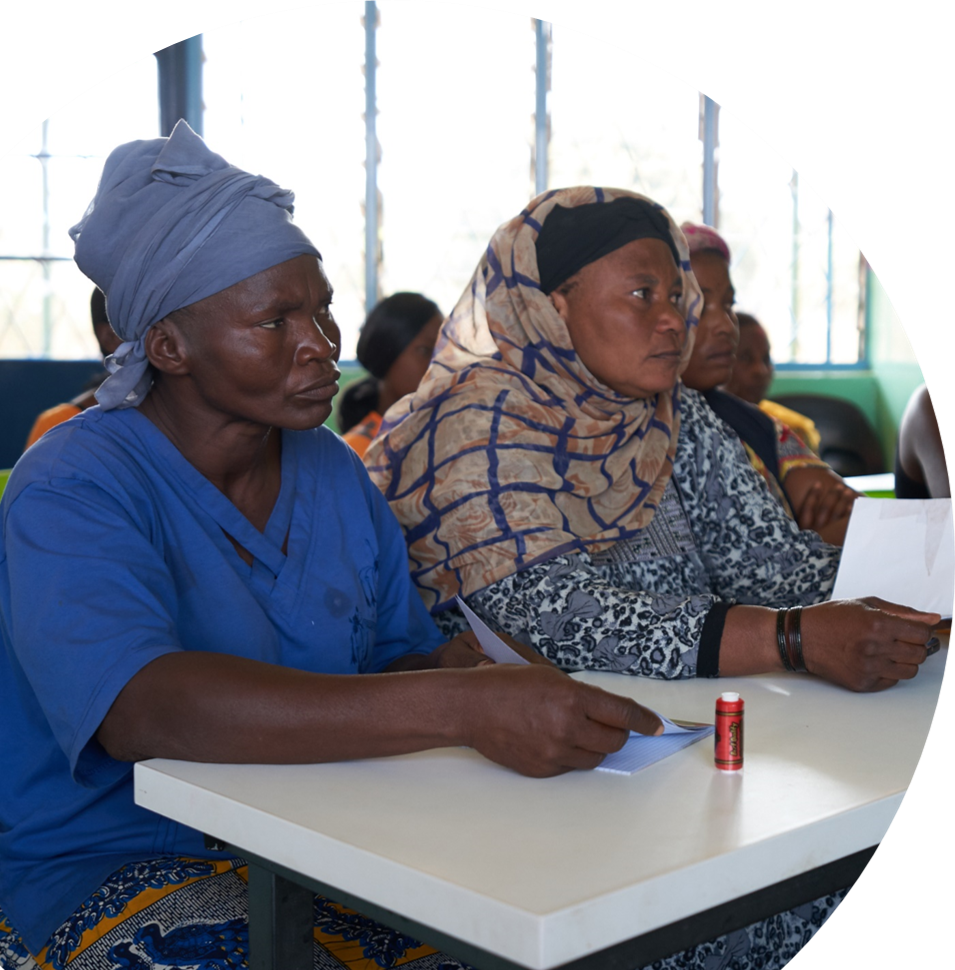 Malaika’s Nzuri Skills project addresses the lack of opportunity and financial independence experienced by the women of Kalebuka. Through this program, women receive vocational training, gain self-sufficiency, enjoy increased control over their reproductive health, and help uplift their families and community. According to the World Bank, when women are educated and take control of their reproductive decisions, they have fewer and healthier children. Educated women earn twice as much as those who lack an education, and women invest 90 percent of their income back into their families and communities compared with just 35 percent for men. Therefore, the project directly affects the women of Kalebuka plus everyone in the community.
Malaika’s Nzuri Skills project addresses the lack of opportunity and financial independence experienced by the women of Kalebuka. Through this program, women receive vocational training, gain self-sufficiency, enjoy increased control over their reproductive health, and help uplift their families and community. According to the World Bank, when women are educated and take control of their reproductive decisions, they have fewer and healthier children. Educated women earn twice as much as those who lack an education, and women invest 90 percent of their income back into their families and communities compared with just 35 percent for men. Therefore, the project directly affects the women of Kalebuka plus everyone in the community.
Malaika will use skilled trainers and teachers to provide 300 hours of instruction in literacy, finance, business development, and family planning to 200 women. The vocational options (cohorts) include housekeeping, sewing, and catering, which have traditionally been male-dominated professions because women did not have opportunities to attend school to learn these skills. Housekeeping is a six-month program that runs twice per year and sewing and catering are nine-month programs that will run one-and-a-quarter times during the one-year period. The approximate schedule of activities includes:
- 8 to 12 hours of trade specific training per week
- 4 hours of literacy classes per week
- 8 hours of financial literacy and business planning per week
- 24 hours of family planning (one week of the program will be focused on this topic)
By the end of the first year, 113 women will graduate. The remaining women will graduate six months later. In total, at least 170 women will graduate from Nzuri Skills. The anticipated outcomes are:
- 30 percent average income increase
- 110 women increase their literacy skills by 75 percent (Swahili and French)
- 80 percent have increased financial literacy skills
- 40 women will open home-based businesses
- 40 additional women will obtain employment.
- 90 percent of participants will increase their reproductive health knowledge
- 50 percent of graduates will use reproductive health lessons to control pregnancies
- Increased sense of self-worth, self-sufficiency, and self-esteem.
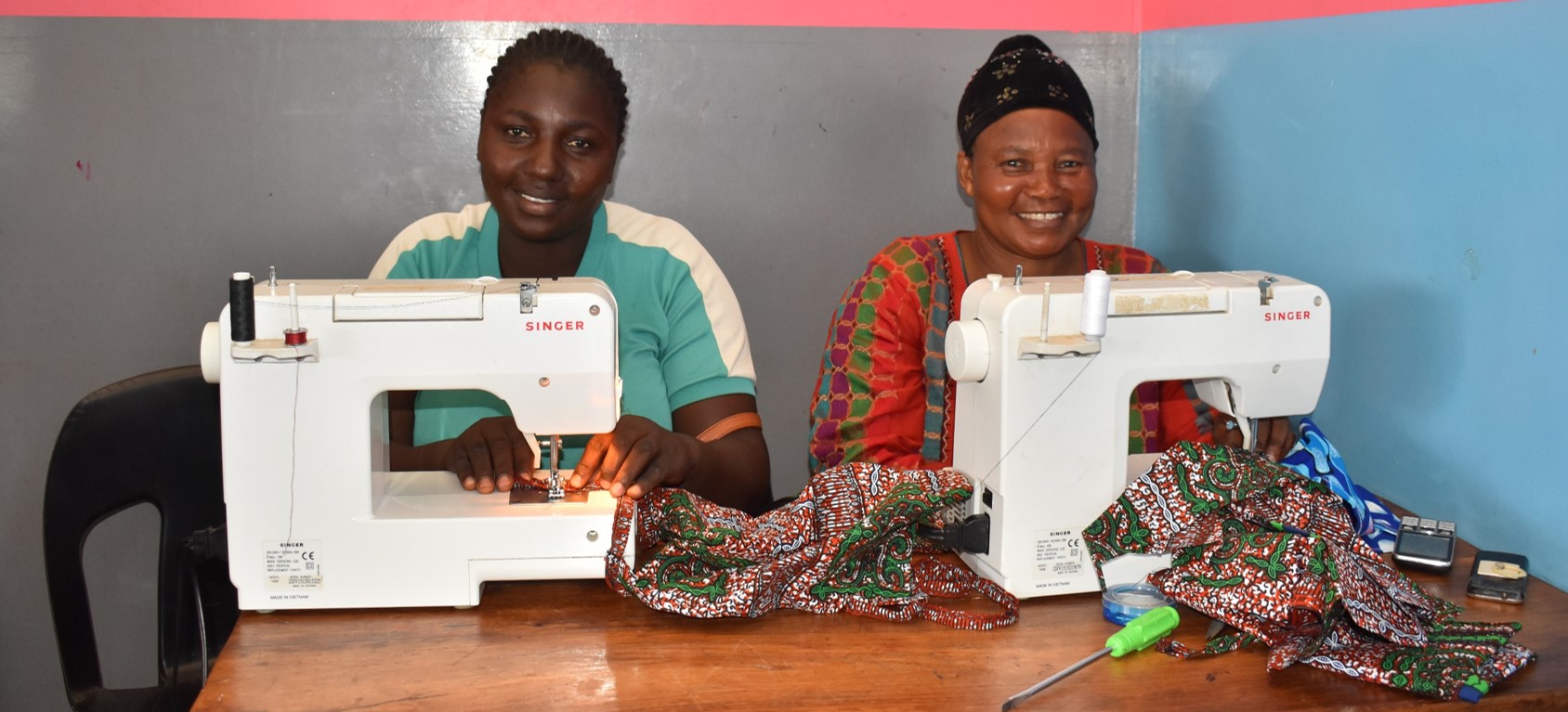
Malaika has created this program to have low barriers to entry and to meet the women where they are in terms of education, skills, and beliefs. Women sign up for Nzuri Skills and the preferred vocation and are then interviewed by program staff to ensure they will be able to attend all classes, have no issues that may interfere with their ability to participate, and they are committed to seeing the cohort through to graduation. Based on these interviews, women are selected to enroll in the program. In addition to these entry (baseline) interviews, Malaika will also conduct exit interviews and surveys at the conclusion of each cohort. They will also follow up with surveys periodically for at least two years to see how the program has impacted the women’s lives. All participants will be invited to attend focus groups to further assess the effectiveness of the program and determine what changes and improvements may be necessary.
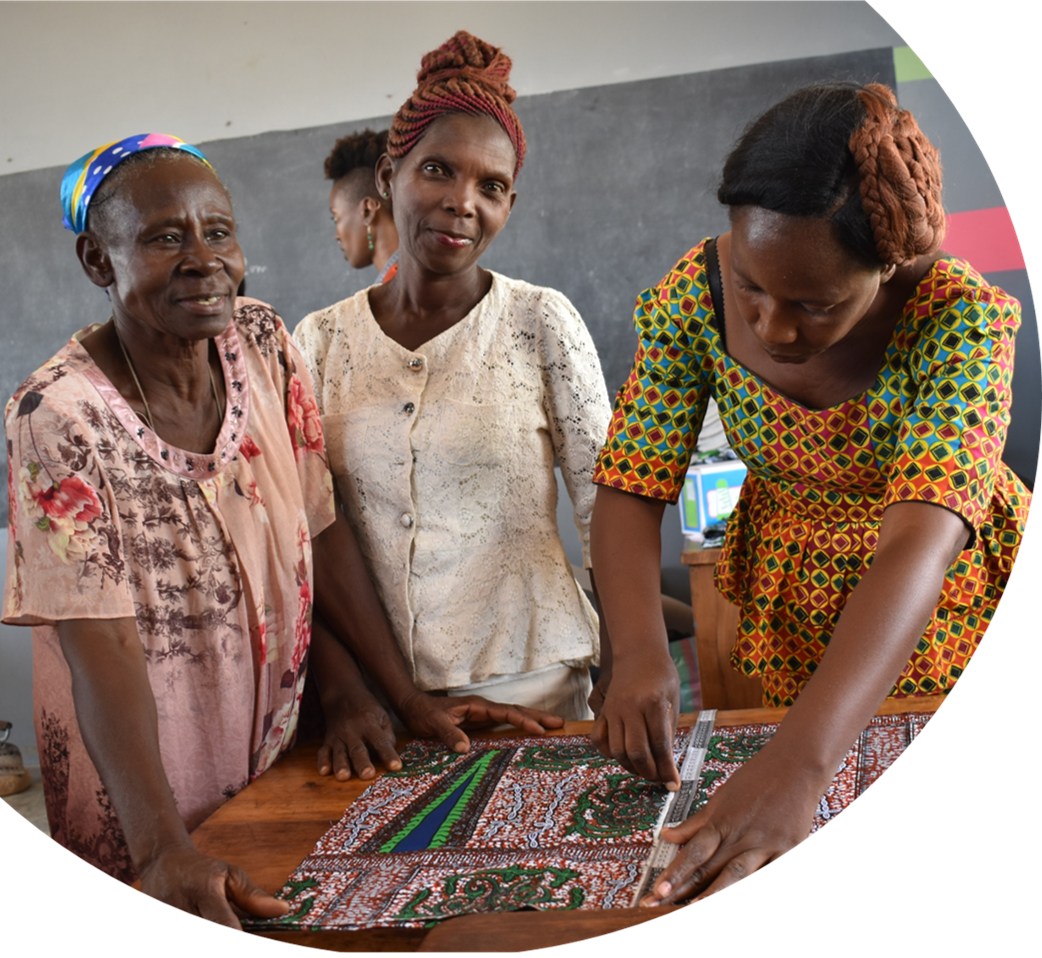 In the first year of Nzuri Skills, 200 women will be directly impacted through the program. This number is based on the number of women Malaika can enroll in each of the cohorts throughout the year. All the direct beneficiaries will be women. The indirect beneficiaries of this program are the young girls in the village who see that women are capable of managing a business, earning money, and being self-sufficient. Additionally, when the women increase the income of their households, they are able to send their daughters to school, creating the next generation of educated girls who will contribute to the empowerment of their village and country, girls who expect know their rights, demand to be included in decision making, to receive an education, and continue to raise self-sufficient daughters, as well as sons who support the rights of girls and women.
In the first year of Nzuri Skills, 200 women will be directly impacted through the program. This number is based on the number of women Malaika can enroll in each of the cohorts throughout the year. All the direct beneficiaries will be women. The indirect beneficiaries of this program are the young girls in the village who see that women are capable of managing a business, earning money, and being self-sufficient. Additionally, when the women increase the income of their households, they are able to send their daughters to school, creating the next generation of educated girls who will contribute to the empowerment of their village and country, girls who expect know their rights, demand to be included in decision making, to receive an education, and continue to raise self-sufficient daughters, as well as sons who support the rights of girls and women.
Approximately 2,500 people will be indirectly impacted through Nzuri Skills. These are counted through the kinship networks of the women who participate in the program, assuming they take the skills developed and use them for the betterment of their families. By increasing the income of their household, the women will be able to provide more food, pay fees for more children to attend school (particularly female children), and provide improved access to healthcare. Of these 2,500 indirect beneficiaries, about 1,400 are girls and women. These numbers are based on Malaika surveys and interactions with the people of Kalebuka and consider average family size and the average percentage of male and female family members.
While it is challenging to partner with local organizations, in the past year Malaika has been able to increase its partnerships with local businesses and industries. A local physician will lead the family planning program for youth and adults, the Association Laïque pour les Bambins d’Afrique (ALBA) regularly supports Malaika through equipment donations, and telecom company Africell has been working with Malaika to ensure reliable internet access for the school and center. Malaika is finalizing a partnership with INPP, the national trade accreditation agency to ensure that graduates of its vocational programs have official and recognized certificates upon graduations.
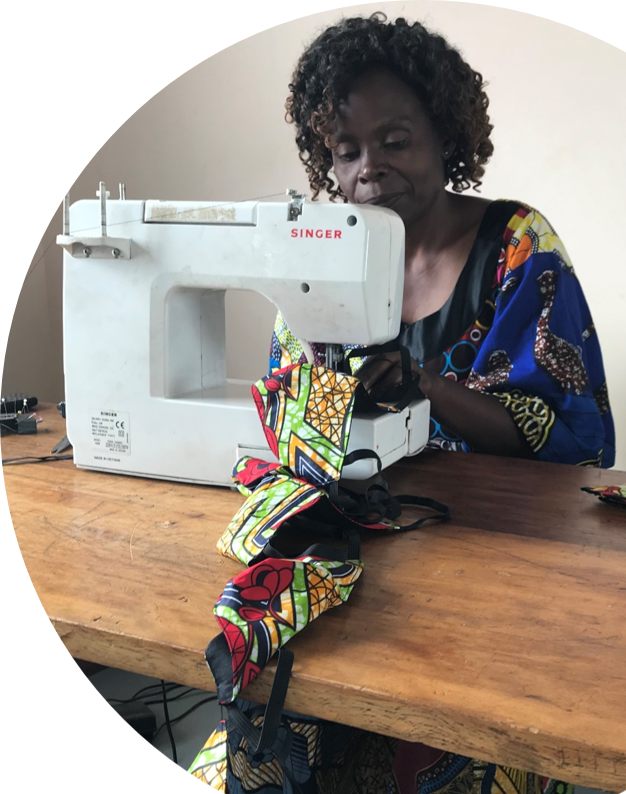 The long-term vision of this project is to create a technical training center in Kalebuka that also acts as a cooperative workspace for men and women. This program can be expanded to include new areas such as carpentry, cosmetology, coding, and other valuable skills that could be parlayed into employment with local companies. We are also working to develop co-ed vocational training opportunities for training in electrical and mechanical vocations with the goal of providing a pathway into employment with mining and solar/electrical companies in the region.
The long-term vision of this project is to create a technical training center in Kalebuka that also acts as a cooperative workspace for men and women. This program can be expanded to include new areas such as carpentry, cosmetology, coding, and other valuable skills that could be parlayed into employment with local companies. We are also working to develop co-ed vocational training opportunities for training in electrical and mechanical vocations with the goal of providing a pathway into employment with mining and solar/electrical companies in the region.
Once Malaika’s first cohort completes the program, the goal is to develop non-repetitive opportunities for them to advance their learning over time. This could involve advanced language, financial, and business literacy skills. Participants could also take additional skills-based classes they did not take the first time. Malaika also hopes to devise a health outreach component, where participants become ambassadors for health information to the community.
200 direct beneficiaries and 2,500 indirect beneficiaries
UN Sustainable Development Goals
![]()
![]()
![]()
![]()
Questions for Discussion
1. How do you think literacy skills, finance skills, business development skills, and ideas of family size are linked?
2. What shifts when women’s sons and daughters see their mothers gaining these skills and pursuing economic independence?
3. How do you think this project promotes gender equality?
How the Grant Will be Used
Together Women Rise’s grant of $35,000 will help fund the following:
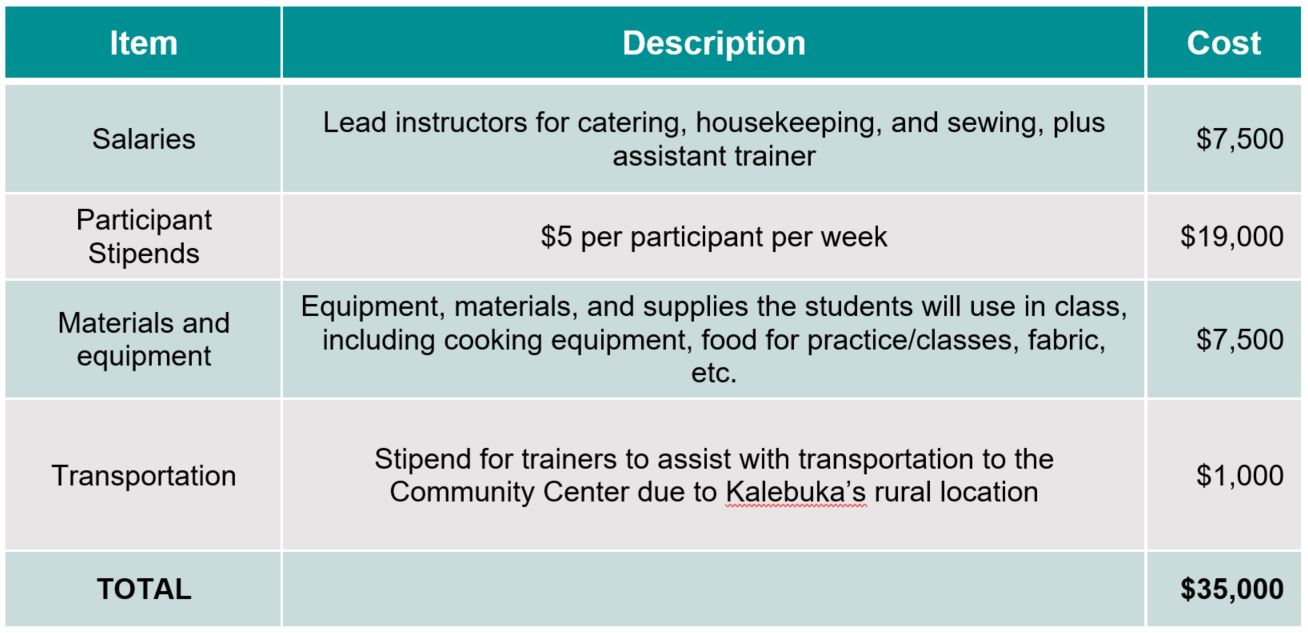
Why We Love This Project/Organization
Malaika has transformed the community of Kalebuka in the DRC in the past decade. Their approach is holistic and sustainable. Their Agriculture, Nutrition, and Water and Health Programs provide vital infrastructure, education, and support. Their schools and community center provide high quality schooling, vocational training, and co-ed sports programs. Listening to their communities, challenging social norms, and building the social capital of women and girls are their strengths and the focus of this project.
Evidence of Success
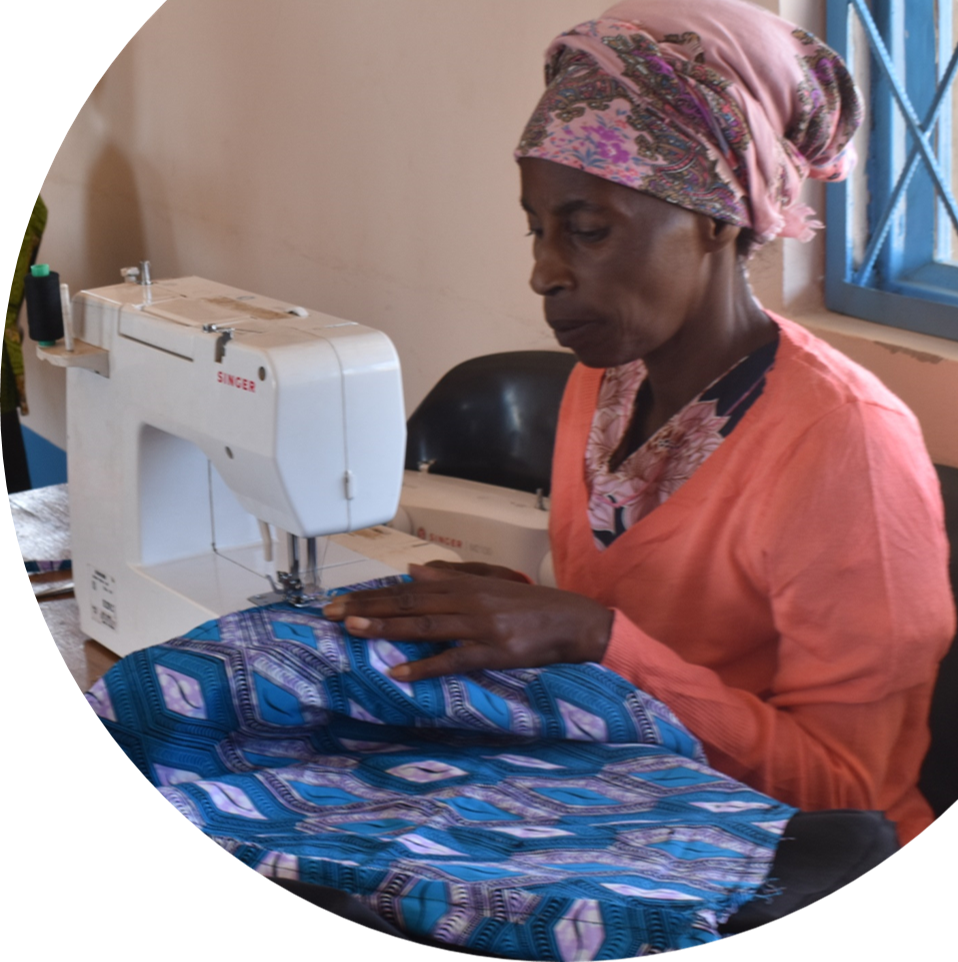 The Malaika Community Center has become a hub of activity in Kalebuka. Malaika’s high impact, community driven approach teaches girls to question and engage and to evolve into progressive leaders who can positively affect their villages, their country, and even their world. Adults have a space to reinvent and reimagine their lives, too. The women of Kalebuka have learning opportunities to improve their literacy, develop personal financial sovereignty, and acquire the knowledge for managing their reproductive health.
The Malaika Community Center has become a hub of activity in Kalebuka. Malaika’s high impact, community driven approach teaches girls to question and engage and to evolve into progressive leaders who can positively affect their villages, their country, and even their world. Adults have a space to reinvent and reimagine their lives, too. The women of Kalebuka have learning opportunities to improve their literacy, develop personal financial sovereignty, and acquire the knowledge for managing their reproductive health.
Malaika’s community-driven model has been integral to its success over the 14 years since its founding. Through a comprehensive, local approach, an entire village has undergone a transformative ripple effect. And it all starts with education: an educated woman is more likely to give back to her community, to inspire others to attend school, and to cultivate a sense of independence among both her peers and the next generation.
Through these efforts, Malaika educates 370 girls per year, 145 out of-school youth attend literacy and math classes at the community center, over 230 individuals attend vocational training classes, and 99 women have graduated from the Nzuri Threads pilot vocational training program, 35 of whom are now members of the Mama Ya Mapendo program at Malaika, where they are paid to create bags and other items that Malaika may then sell to support the center. Five graduates came together to start a sewing cooperative in Kalebuka where they share the workload and profits. Additionally, Malaika’s Sports for Social Development program provides education and honest conversation on health, mental health, gender equity, conflict resolution, and sexual health. Its sports programs have also increased the number of female participants and Malaika has doubled the number of young women working as coaches on the pitch.
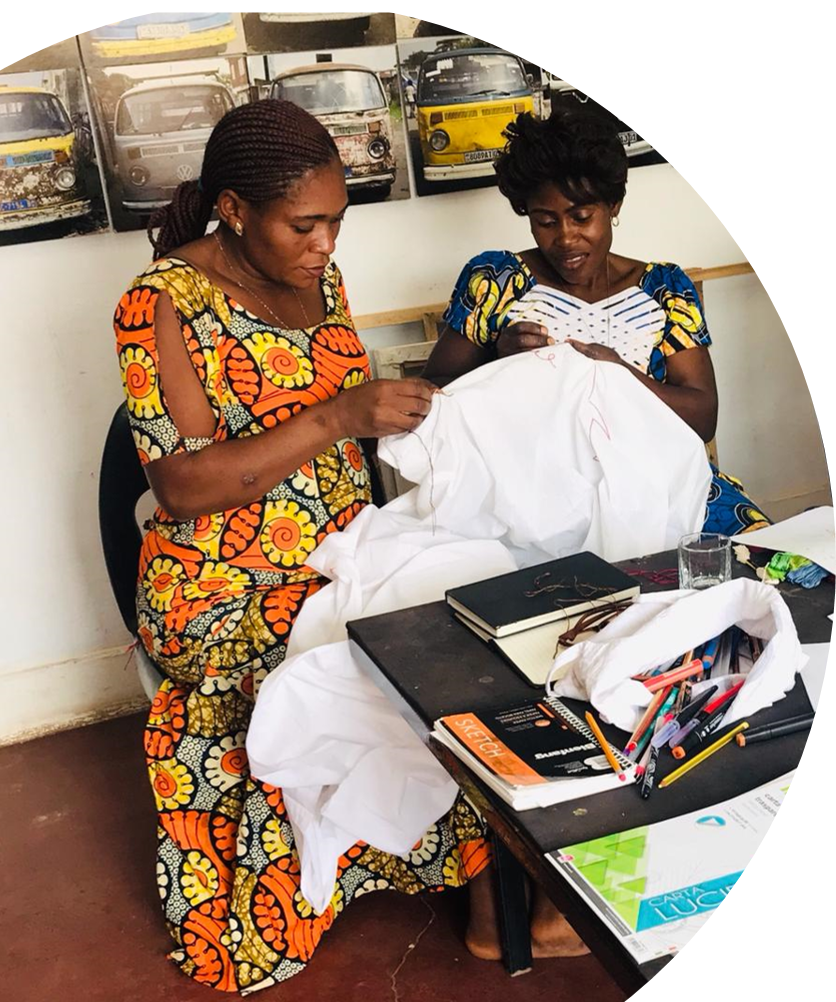 When COVID-19 forced the DRC into a lockdown, thousands of people in Kalebuka lost their jobs, leaving already poor people in a desperate situation. Simultaneously, the lockdown included the closure of all borders, causing food prices to skyrocket by 500 percent in some cases. Recognizing the dangers, and the immediate needs of the community, Malaika began an emergency food distribution that included basic food items such as maize and beans, as well as hygiene items to help curb the spread of COVID-19. Mama Ya Mapendo members sewed thousands of masks to include in the distribution. Throughout lockdowns, Malaika distributed emergency bags to 7,791 people while also setting up handwashing stations throughout the area and conducting outreach about the virus and prevention.
When COVID-19 forced the DRC into a lockdown, thousands of people in Kalebuka lost their jobs, leaving already poor people in a desperate situation. Simultaneously, the lockdown included the closure of all borders, causing food prices to skyrocket by 500 percent in some cases. Recognizing the dangers, and the immediate needs of the community, Malaika began an emergency food distribution that included basic food items such as maize and beans, as well as hygiene items to help curb the spread of COVID-19. Mama Ya Mapendo members sewed thousands of masks to include in the distribution. Throughout lockdowns, Malaika distributed emergency bags to 7,791 people while also setting up handwashing stations throughout the area and conducting outreach about the virus and prevention.
Voices of the Girls
“I am very grateful to Malaika for giving us such a chance to change our lives. I am not able to take care of the family, combined with my husband’s efforts. Now my husband and I are envisioning the start of new projects that would allow us to buy our own plot of land in Kalebuka.”
– Nzuri Threads graduate
About the Organization
Malaika empowers girls and women and works with all community members to further gender equality and to create a sustainable, empowered community of men, women, and children. Nzuri Skills takes all of Malaika’s work to date and applies it into one project. Like Together Women Rise, Malaika believes that the collective power of the community can achieve gender equality.
Founded in 2007, Malaika started as a way to provide girls in the Democratic Republic of the Congo with an education. Malaika’s founder, Noella Coursaris Musunka, is from Lubumbashi, DRC and was driven to start Malaika after witnessing how different her life would be had she not received an education. When she was just 5 years old Noella’s father passed away and her mother, unable to afford school fees, made the difficult decision to send Noella to live with relatives in Europe, hoping to ensure a better future for her. She recognized the sacrifice her mother made and the importance of her education and became dedicated to helping other Congolese girls. After moving on to college and being discovered as a model, Noella used her income and her new connections to start the Georges Malaika Foundation.
Malaika focuses on four essential program areas to improve life in Kalebuka:
- School: The Malaika School provides 370 girls with high quality education every year. Students receive everything they need to be successful including all uniforms and gym clothes, books and supplies, two healthy meals per day, and regular health check-ups. Prior to Malaika there was one poorly run school (for boys). The literacy rate in the Kalebuka area is one of the lowest in the country at just 4 percent for women, 8 percent for men, and 10 percent for youth – with many children not attending school due to inability to afford school fees. Prior to building the school, Malaika sponsored 10 girls from a local orphanage. The sponsorship included the cost of their education and living expenses. Construction of the school began in 2009 and the Malaika school opened its doors in 2011 to 104 students.
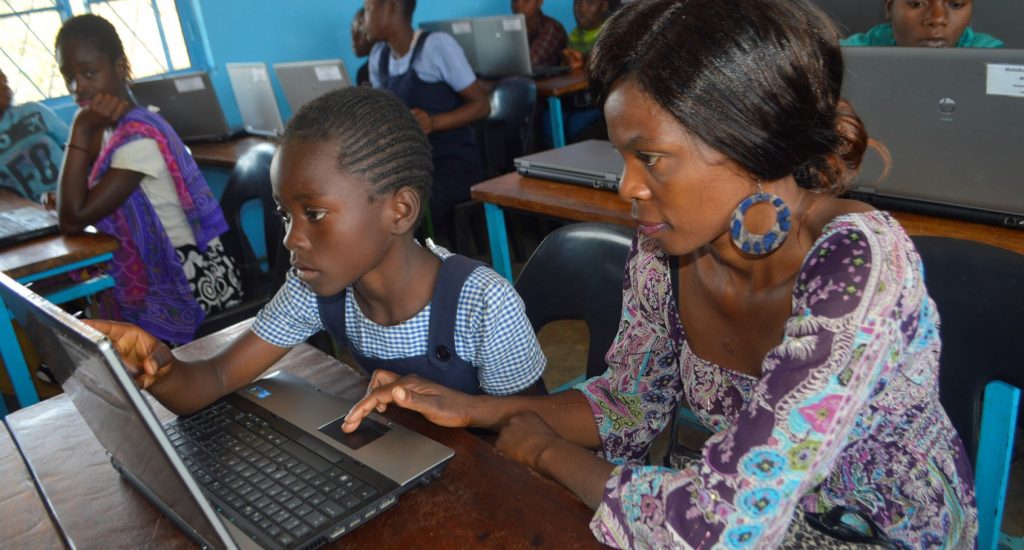
- Community Center: The Malaika Community Center offers extensive programming, including literacy, vocational education, sports, and health classes to more than 5,000 adults and out-of-school youth, providing life-changing opportunities for the community at large. In 2013 Malaika partnered with FIFA to open the Kalebuka Football for Hope Center (now the Malaika Community Center), a place where out-of-school youth and adults can obtain education, vocational training, engage in sport, and come together. Prior to Malaika there was no community center.
- Water and Health Programs: Malaika’s clean water initiative has built and refurbished 20 wells in and around Kalebuka, bringing clean water to over 35,000 people. Its health programs deliver vital information on health including anti-malaria outreach, sanitation and hygiene support, communicable diseases education, reproductive health, and menstrual health management. Prior to Malaika, the closest clean water was an open hole more than 3 kilometers away.
- Agriculture and Nutrition: Malaika’s agricultural program grows organic food on campus, providing students and staff with two healthy meals each day, creating employment opportunities, and serving as a platform to educate the community about sustainable farming practices.
Where They Work
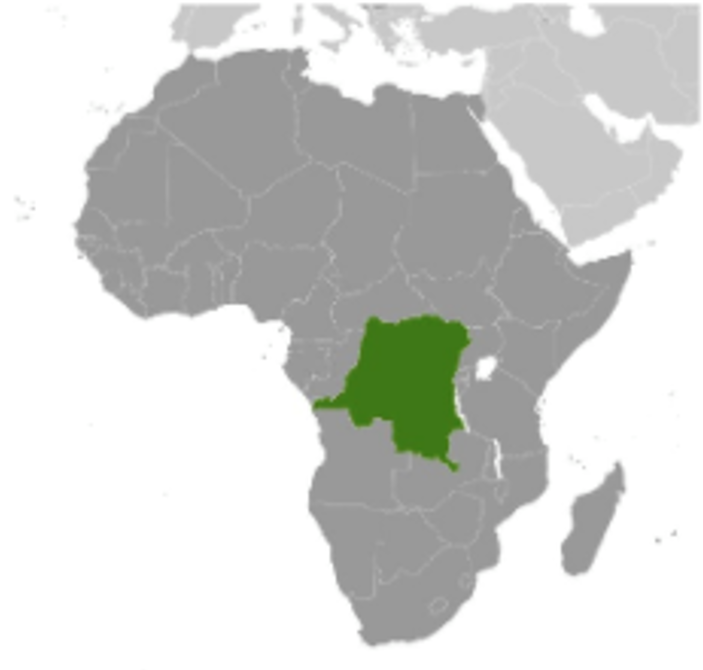
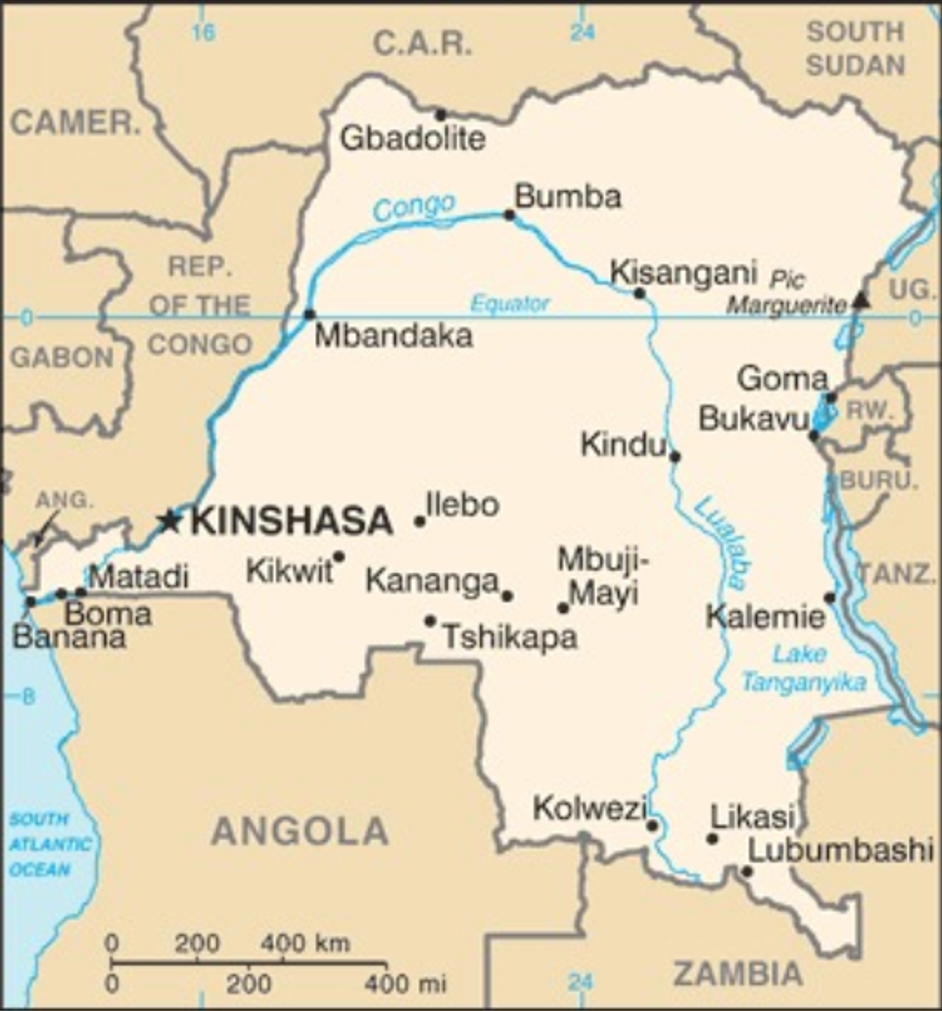
The Democratic Republic of the Congo is a large country in central Africa, about a quarter of the size of the US. It’s population is 102 million, comprised of more than 200 ethnic groups. Of these, Bantu is the largest majority. Although more than 200 languages are spoken, French is the official language and there are four national languages: Swahili, Tshiluba, Lingala, and Kongo. Kalebuka is in the Haut-Katanga province in the Democratic Republic of the Congo. Malaika is the only organization working in Kalebuka, near the city of Lubumbashi, the third largest city in the DRC.
DRC is among the most resource-rich countries in the world, with massive deposits of industrial diamonds, cobalt, and copper, one of the largest forest reserves in Africa, and approximately half the hydroelectrical potential of the entire African continent. Despite this, DRC has the third largest population of poor in the world, with three out of four living on less than $1.90 per day. Violence against women is so commonplace that in a 2013 Demographic and Health Survey, three out of four women agreed that a husband was justified in beating his wife in certain circumstances. The eastern region has been called the “rape capital of the world.”
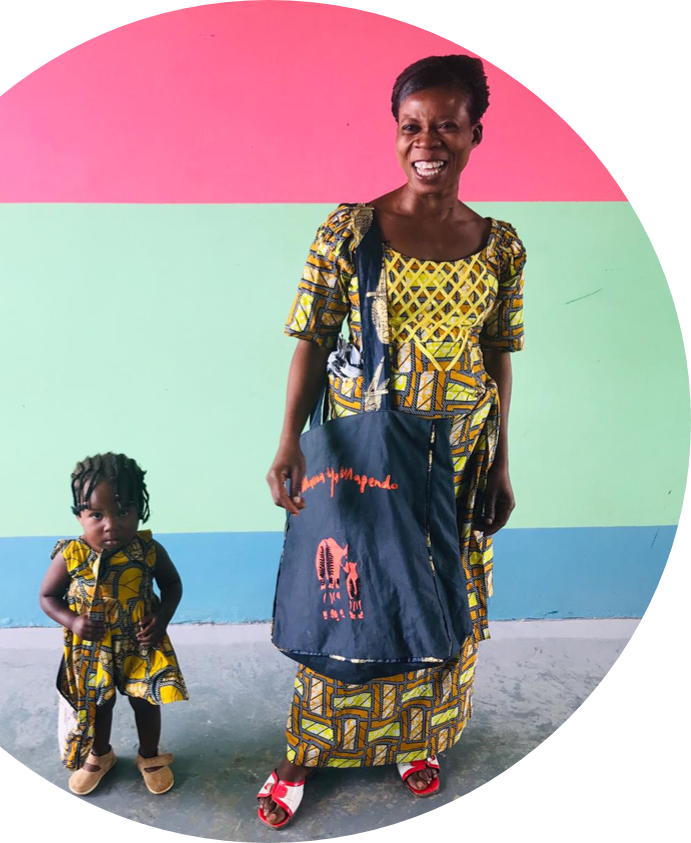 DRC is fraught with government instability and corruption. Former ruler Mobutu Sese Seko oversaw Congo from 1965 to 1997 (when he renamed the country Zaire). He institutionalized corruption to prevent any challenges to his authority and stole billions of dollars while in office. This led to an economic collapse in 1996. In December 2018, Félix Antoine Tshisekedi Tshilombo won the presidential election in a peaceful transition of power. Much remains to be done to elevate poverty, build infrastructure, and strengthen the country’s financial systems. The COVID-19 pandemic continues to put pressure on the fragile economy.
DRC is fraught with government instability and corruption. Former ruler Mobutu Sese Seko oversaw Congo from 1965 to 1997 (when he renamed the country Zaire). He institutionalized corruption to prevent any challenges to his authority and stole billions of dollars while in office. This led to an economic collapse in 1996. In December 2018, Félix Antoine Tshisekedi Tshilombo won the presidential election in a peaceful transition of power. Much remains to be done to elevate poverty, build infrastructure, and strengthen the country’s financial systems. The COVID-19 pandemic continues to put pressure on the fragile economy.
The climate varies depending on location: hot and humid in the equatorial river basin, cool and dry in the southern highlands, and cool and wet in the eastern highlands.
A closer look at equipping girls to avoid pressure for early marriage
Women may make up half the world’s population, but they don’t comprise half the workforce. Often they are working, but their contributions are not paid or recognized. There are many reasons for that, including gender discrimination and inequality, lack of access of education, social norms and traditions, and male-centric societies.
This unfortunate situation not only traps women in a cycle of poverty and dependence, it also takes a toll on the global economy. According to the McKinsey Global Institute, advancing gender equality and giving women the same opportunity for work as men would add $28 trillion to the global economy while allowing millions of women to work and gain financial independence. This would not only benefit the women, but also their families and broader communities.
According to the World Bank, there are 100 countries with laws that restrict the type of work women can do and only six countries that give men and women equal rights in the workforce (the US is not one of them). In some countries, women must still get permission from their husbands to work outside the home. Further, only a third of businesses are owned or partly owned by women.
Gender inequality is responsible for a wide array of harmful consequences. The ability to gain employment and earn income is one of the most basic and damaging. Malaika helps break down these barriers by training women in fields historically filled by men. Women who challenge gender norms by entering professions historically dominated by men blaze a critical path for their daughters and other women.
Source Materials
https://www.britannica.com/place/Democratic-Republic-of-the-Congo
https://www.worldbank.org/en/country/drc/overview#1
https://www.cfr.org/global-conflict-tracker/conflict/violence-democratic-republic-congo
https://www.worldvision.org/disaster-relief-news-stories/drc-conflict-facts
https://www.cia.gov/library/publications/the-world-factbook/geos/cg.html
https://www.globalcitizen.org/en/content/women-global-work-force-barriers/https://finca.org/blogs/need-know-women-working-around-world/
